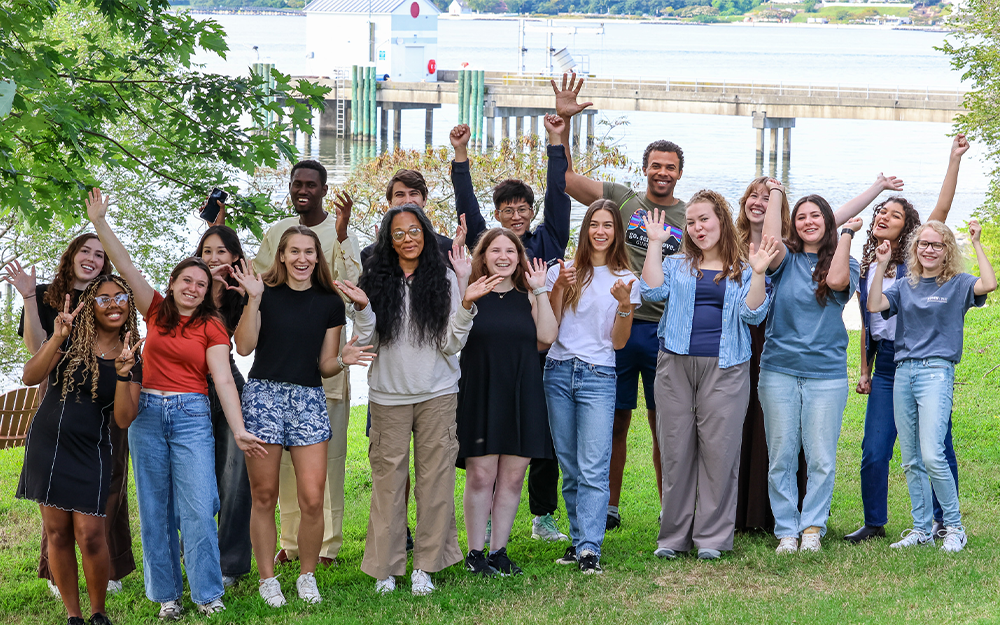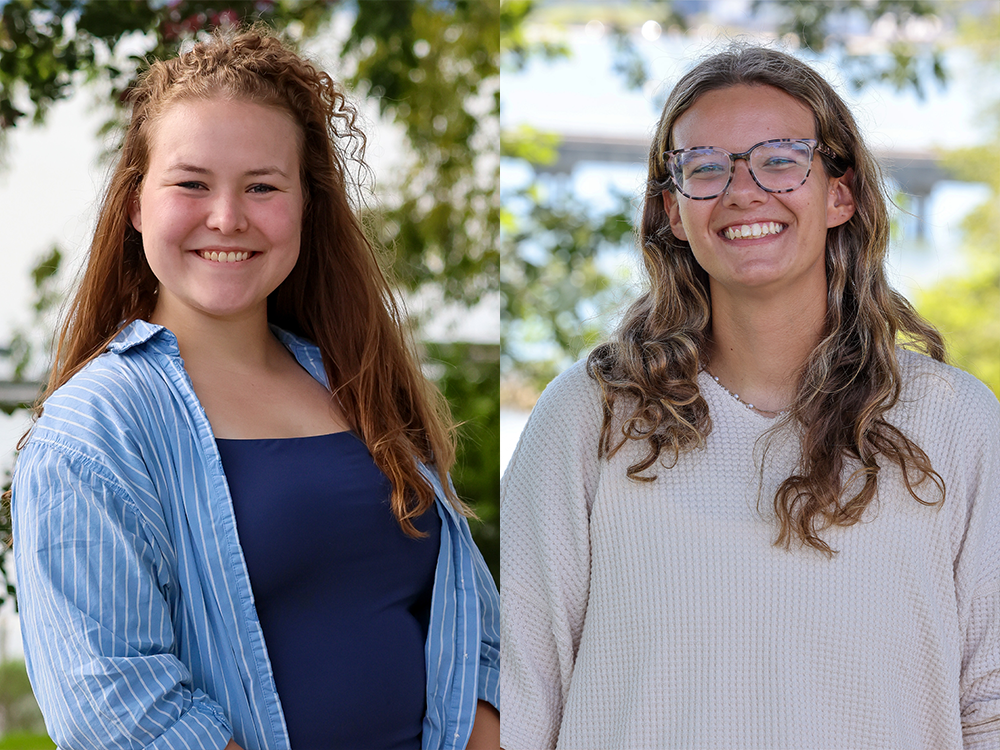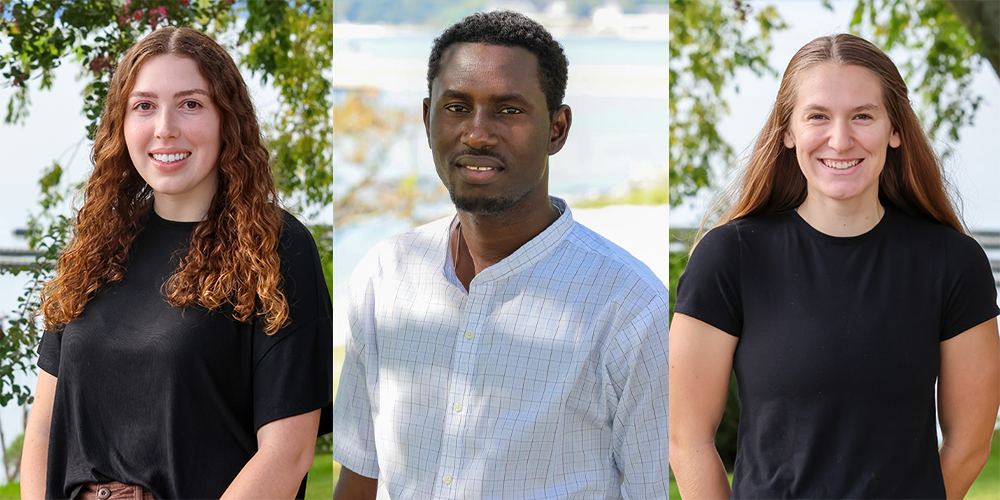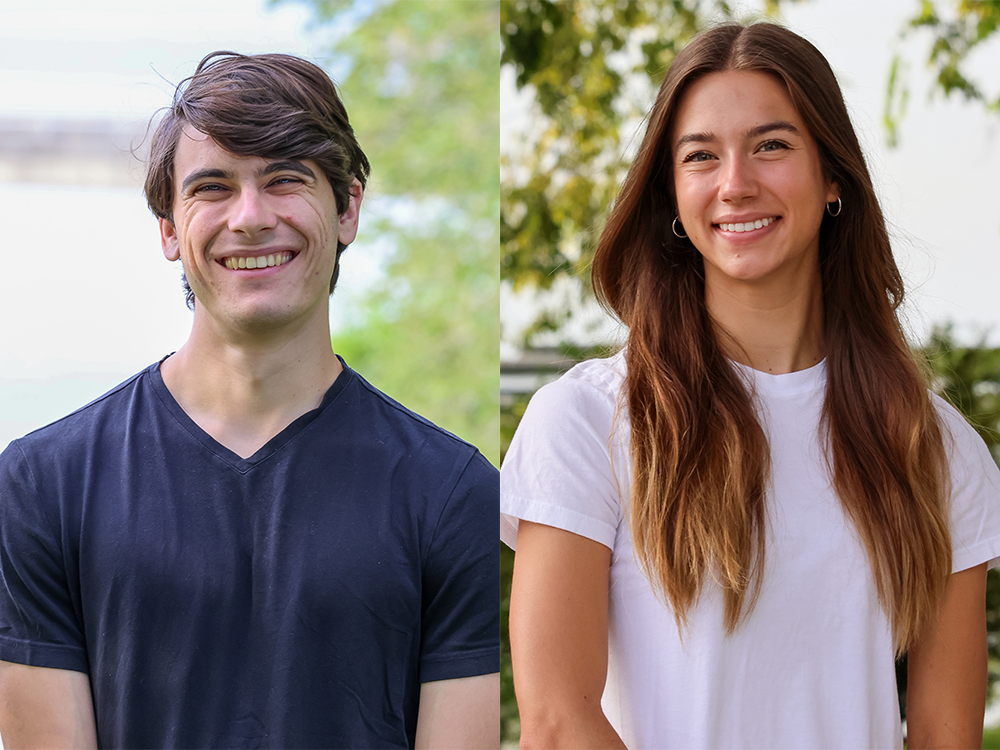The newest students at W&M’s Batten School of Coastal & Marine Sciences are eager to make an impact
 “I'm absolutely thrilled to get started. It’s a dream program at a beautiful location,” said Ph.D. student Sophia Tearman, describing the enthusiasm shared among the newest cohorts at William & Mary’s Batten School of Coastal & Marine Sciences & VIMS. “I'm most excited about the new perspectives from all the new people I'll get to learn from.”
“I'm absolutely thrilled to get started. It’s a dream program at a beautiful location,” said Ph.D. student Sophia Tearman, describing the enthusiasm shared among the newest cohorts at William & Mary’s Batten School of Coastal & Marine Sciences & VIMS. “I'm most excited about the new perspectives from all the new people I'll get to learn from.”
 This year, the Batten School & VIMS welcomed 17 new graduate students into the M.A., M.S. and Ph.D. programs, as well as 11 undergraduate students into the inaugural class of W&M’s newly formed bachelor’s degree in coastal & marine sciences — the only such program at a public university in Virginia.
This year, the Batten School & VIMS welcomed 17 new graduate students into the M.A., M.S. and Ph.D. programs, as well as 11 undergraduate students into the inaugural class of W&M’s newly formed bachelor’s degree in coastal & marine sciences — the only such program at a public university in Virginia.
“I've always cared deeply about conserving natural areas, for both wildlife and people,” said Lily Shriner, an undergraduate student from Pennsylvania. “The coastal & marine sciences major will help me develop the skills and knowledge needed to make a positive change for the environments that have shaped me as a person.”
Siddhartha Mitra Ph.D. ’97, associate dean for academic affairs, has high praise for the new graduate and undergraduate students. “The 2025 matriculating students at the Batten School & VIMS come from a range of diverse backgrounds and boast an impressive array of personal experiences and academic accomplishments,” he said. “Making this year even more inspiring is the introduction of our first class of undergrads, who are bringing an extra sense of energy to our already thriving campus.”
Choosing the Batten School & VIMS
New students took a variety of academic paths which ultimately led to the same exceptional place, as applicants were drawn to the multitude of unparalleled opportunities offered at the Batten School & VIMS.
For M.A. student Lindsey Dillard, a Virginia native who earned her bachelor’s degree in biology with a minor in marine science at W&M, being on the water is a family tradition.
“My family have been watermen forever, so I really wanted to continue that,” she said. “I feel like I have the same passion they had, but I’m taking it into science as the first generation to go to college. I want to be able to connect with people on regulation and policy and make an impact on fisheries.”
 M.S. student Abdoulie Jallow had a longer journey to the Batten School & VIMS from his home country, the Republic of the Gambia. During undergraduate research, Jallow participated in a regional fisheries survey on a U.N. research vessel.
M.S. student Abdoulie Jallow had a longer journey to the Batten School & VIMS from his home country, the Republic of the Gambia. During undergraduate research, Jallow participated in a regional fisheries survey on a U.N. research vessel.
“There, I met an alumni of VIMS, Dr. Kate Bemis, who was the chief taxonomist. I was very impressed with her skills, and that’s how I learned about VIMS,” he said.
Several of the new students identified exposure to advisory services as a key motivator for enrolling, including Ph.D. student Catherine Wardinski, who earned her master’s degree from Hawaii Pacific University.
“I'm really excited about the advisory aspect of VIMS and how interconnected they are with the community and other organizations, making sure that we work on impactful science,” she said. “I think that's really important, especially in this day and age, and I think that's the really enticing part about VIMS."
Starting their academic journey
As they begin their time at the Batten School & VIMS, matriculating students are well positioned to participate in meaningful research.
Wardinski is a full-time staff member in Meredith Evans Seeley’s coastal and marine pollution lab while collaborating with the Center for Coastal Resources Management on the National TRAP Program. “I’m going to be studying the polymer composition of derelict traps and their impacts on the environment,” she explained.

Ari Siegel, a Maryland native who attended the University of Florida for his undergraduate studies, is an M.S. bypass student — a master’s student who will apply to bypass the M.S. degree on the way to earning a Ph.D. He will be working with his advisor, Matt Kirwan, on ghost forests, marsh migration and sea level rise.
“I’m most excited to get out into the Chesapeake Bay and do field work,” he said. “I grew up near the Bay, so I'm looking forward to getting back to my roots and applying what I’ve learned to the area I grew up with.”
Across the academic programs, undergraduate and graduate students are eager to obtain the information and abilities necessary to make a difference for coastal communities and environments. Career aspirations range from research and education to policy advisement and industry management.
M.S. student Claire Curran, a Seattle-based professional ballet dancer who is transitioning careers in hopes of becoming a professor, said, “My parents spent my whole life saying, ‘How can you make the world a better place?’ and I feel like this is how I can do that.”

